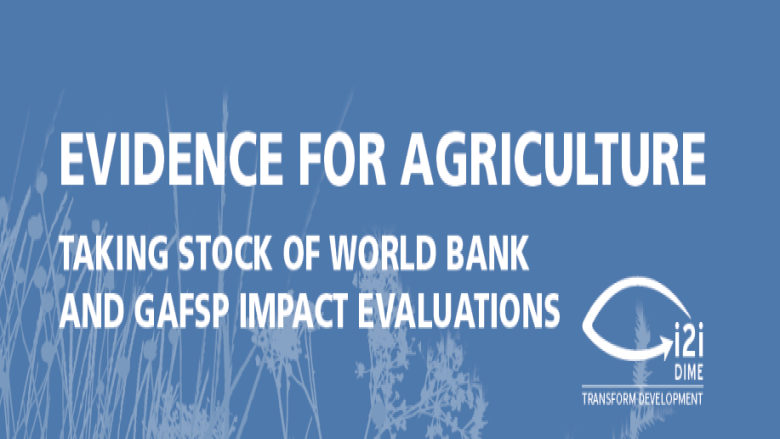Agriculture is the world’s largest employer and with international goals to double income for smallholders, the sector attracts substantial investment. But the rigorous evidence to identify most effective interventions is surprisingly scarce. To help meet this gap, DIME works with the Agriculture Global Practice and the Global Agriculture and Food Security Program (GAFSP) to conduct evaluations of World Bank and GAFSP programs.
The aim of this two day event is to bring together researchers from DIME and partner institutions with teams from operations to share ongoing research, discuss where the Bank should take these results, reflect on key knowledge gaps in agricultural policy where further evidence is needed, and agree on how to prioritize new impact evaluations going forward.
Results to be shared from DIME collaborations with projects in the areas of:
• Technology adoption
• Commercialization
• Gender based interventions
• Inclusion and targeting
Last Updated: Nov 02, 2016
